WebQuest: Substantiating Education in Edutainment through Interactive Learning Games
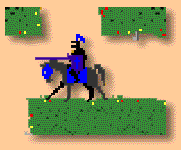
Corrina Perrone
David Clark, Alexander Repenning
Center for LifeLong Learning and Design
University of Colorado
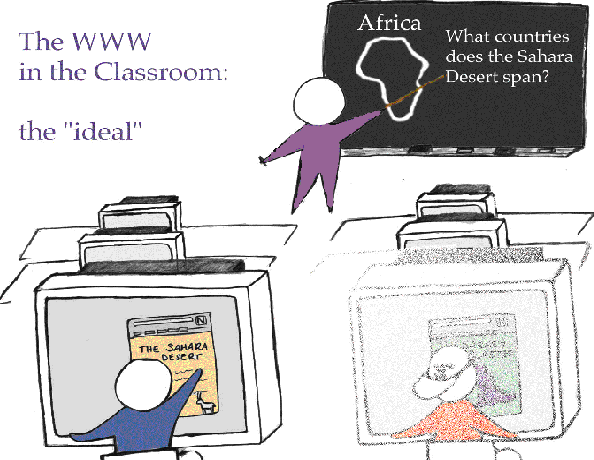
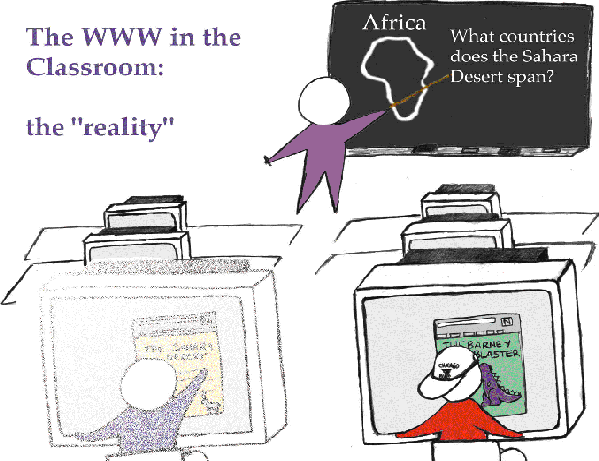
Edutainment on the World Wide Web
| | Education(learning) | Entertainment(motivation) |
|
|---|
| + | 1. Lots of information
2. Distance education enabled
3. Increasing Interaction
| 1. Self-directed
2. Engaging
| + |
| - | 1. Lots of Information
2. Dubious sources
3. Organization by site only
4. Broadcast Mode
| 1. Fragmented
2. Learning Unassessable
3. Easy to get "hypertracked" | - |
WebQuest: WWW + Interactive Simulation Games
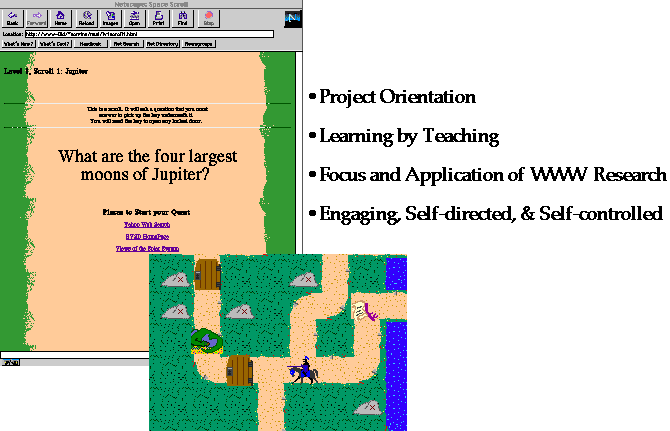
WebQuest Architecture
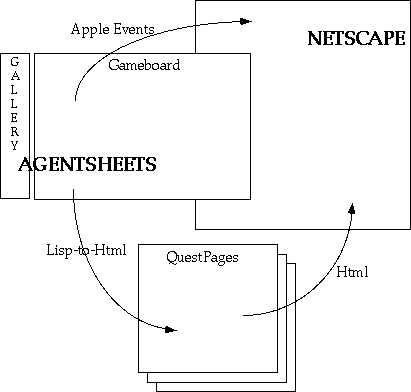
Learning by Teaching
- Understanding
- Laying out a Gameboard
- Re-Representing
- Sharing & Observing - the "audience" factor
- Reflecting & Making Changes
Understanding - Researching a Theme on the Web

Laying Out a Gameboard
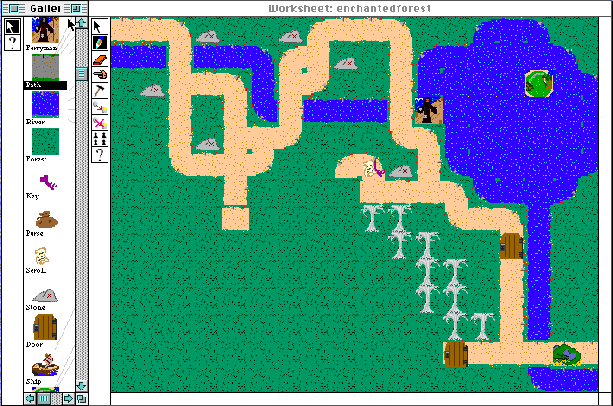
Re-representing Information as a Quest
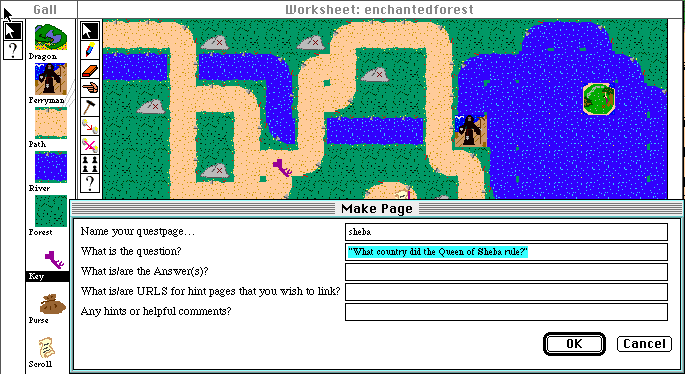
Sharing the Finished Game
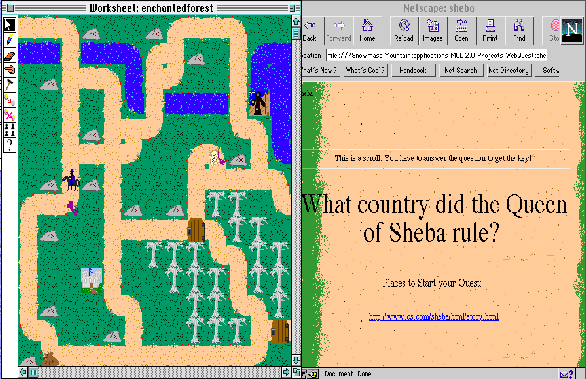

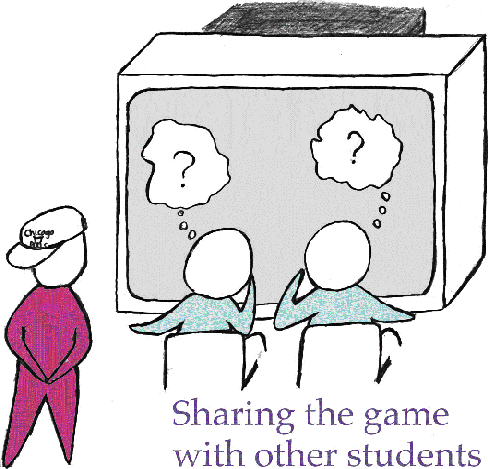
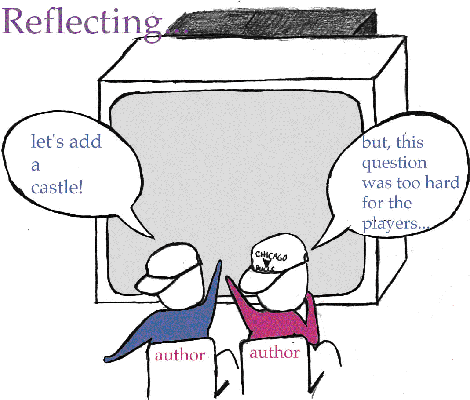
Experience in the Classroom
- FOUR Experiments - 3 Classes & 1 Science Discovery Program in the Boulder Valley School District
- Students (from 8 - 12 yrs old) are VERY engaged:
- "I really liked this program. It rocked."
- "I don't want to stay on the path - can I walk in the forest?"
- "We need an AX to cut down these trees."
- "I want a castle."
- "I figured out how to cheat."
- "I like learning like this. You get to build something fun."
- Out of 45 - 50 Children, we had 1 negative reaction
Future Work
- Expanded "grading" program to allow more difficult questions.
- Advanced features of programming more accessible:
- Creating new Game Pieces/Characters
- Creating new Game Objects & their behaviors
- Ability to make the Gameboard and the Theme Correspond
- Sharing across classes & schools - Remote Explorium WebQuest
- Additional curricular resources - search agents, libraries, etc.
Conclusions
The most effective use of the WWW in the classroom will happen with applications that allow students to:
- focus their WWW research efforts in self-determined directions.
- understand & re-represent research information by application.
- create sharable, personally meaningful artifacts.
- observe/reflect on/revise these artifacts.
Acknowledgements:
This work is supported by the National Science Foundation.
The Center for LifeLong Learning & Design, and Dr. Gerhard Fischer.











